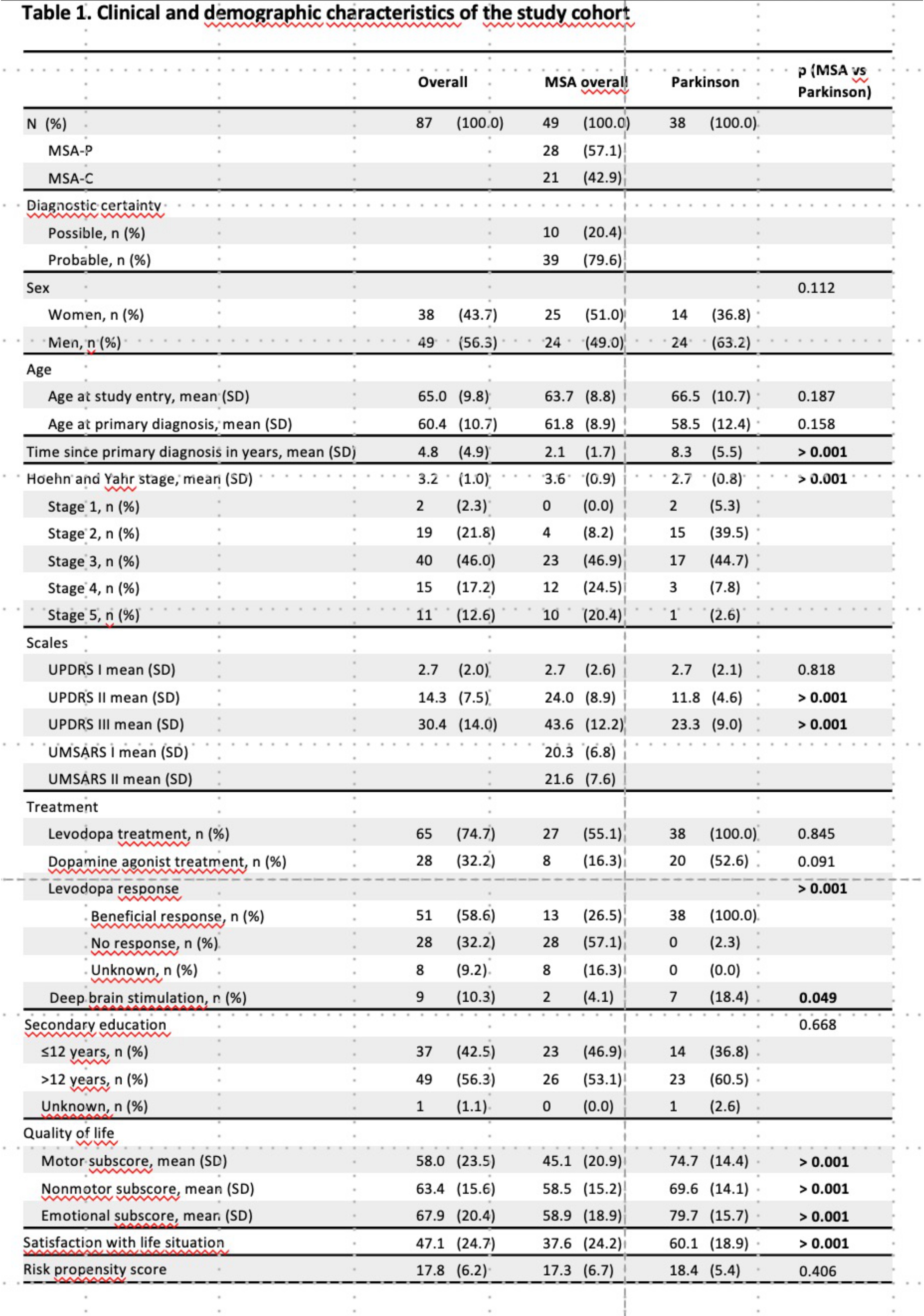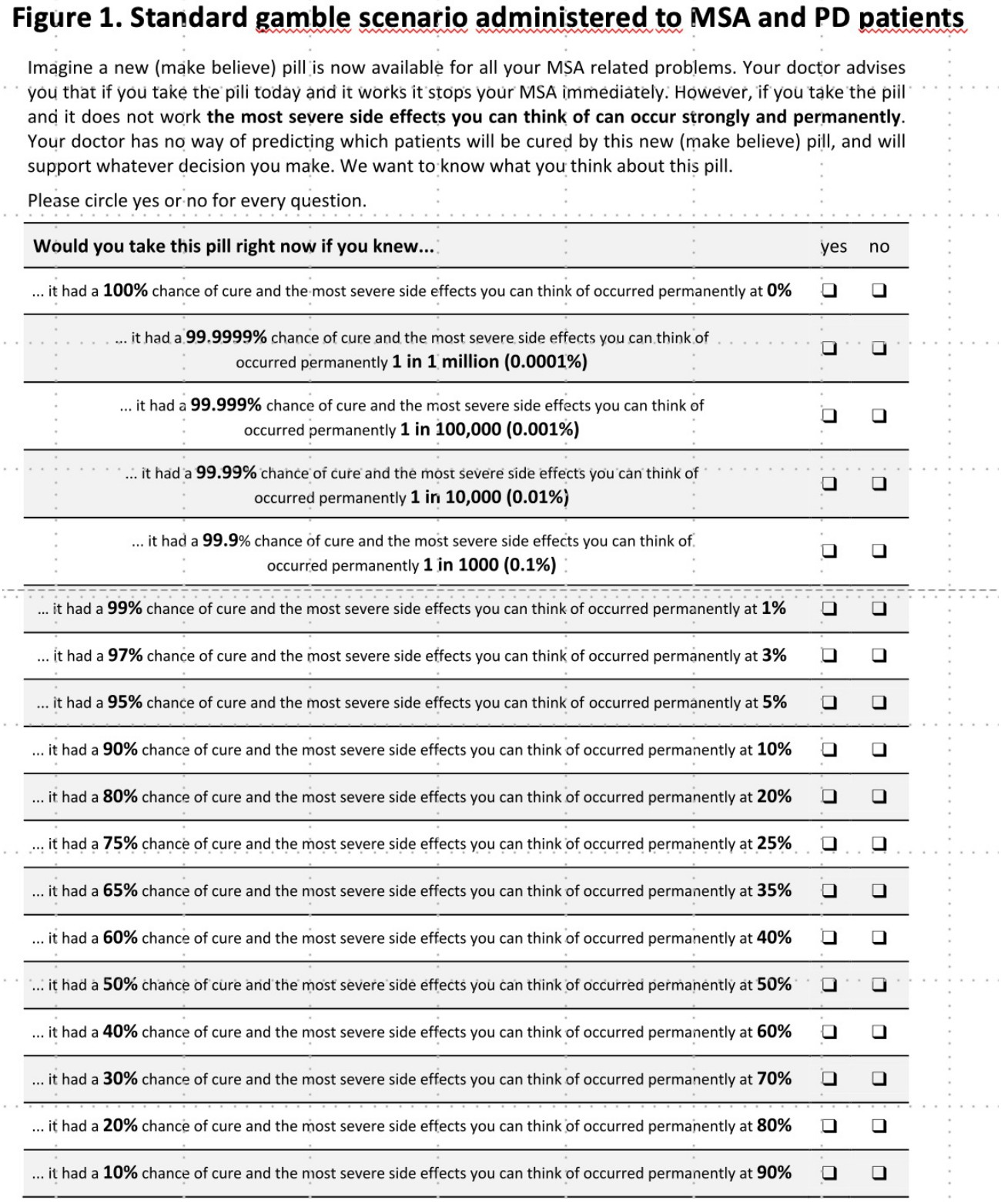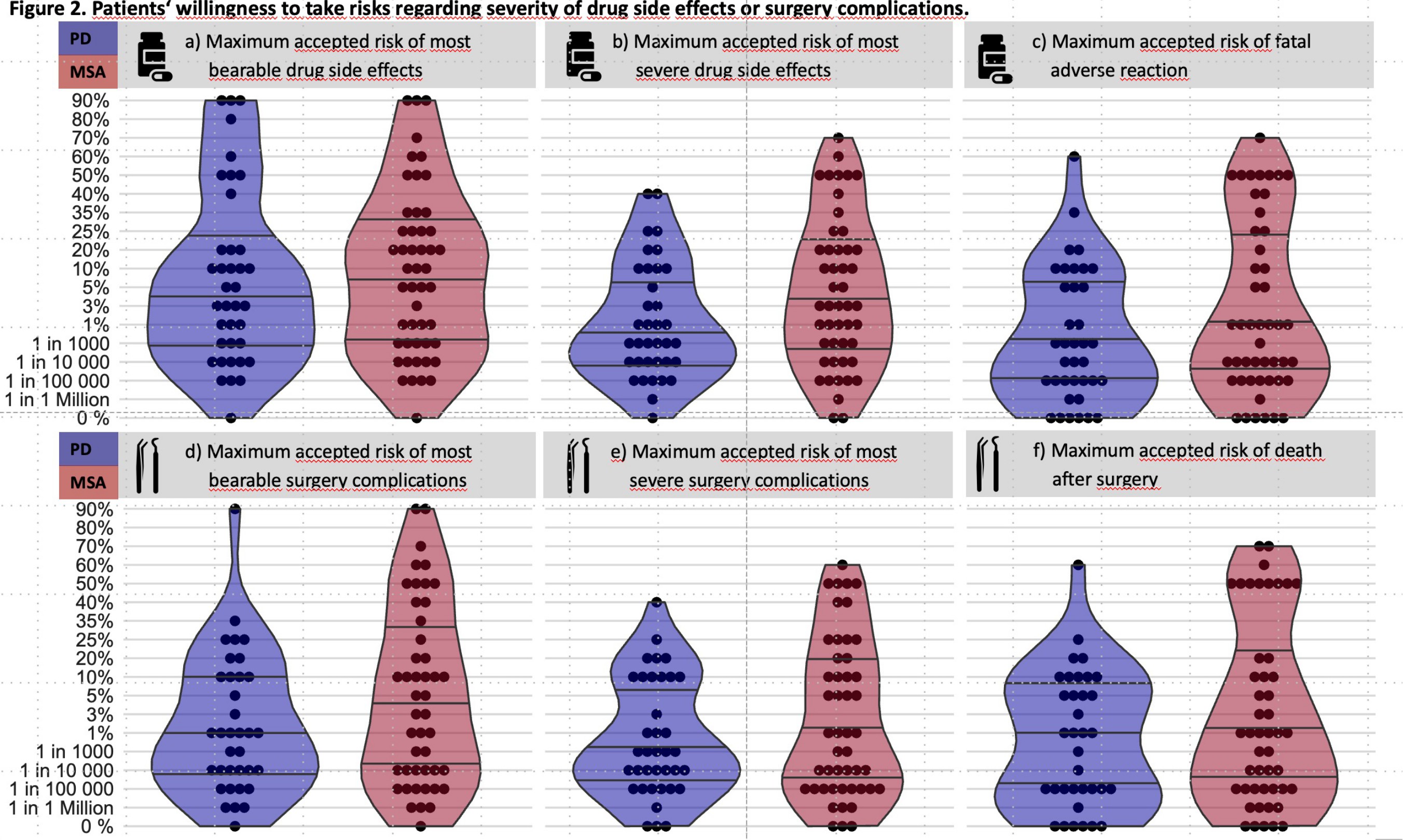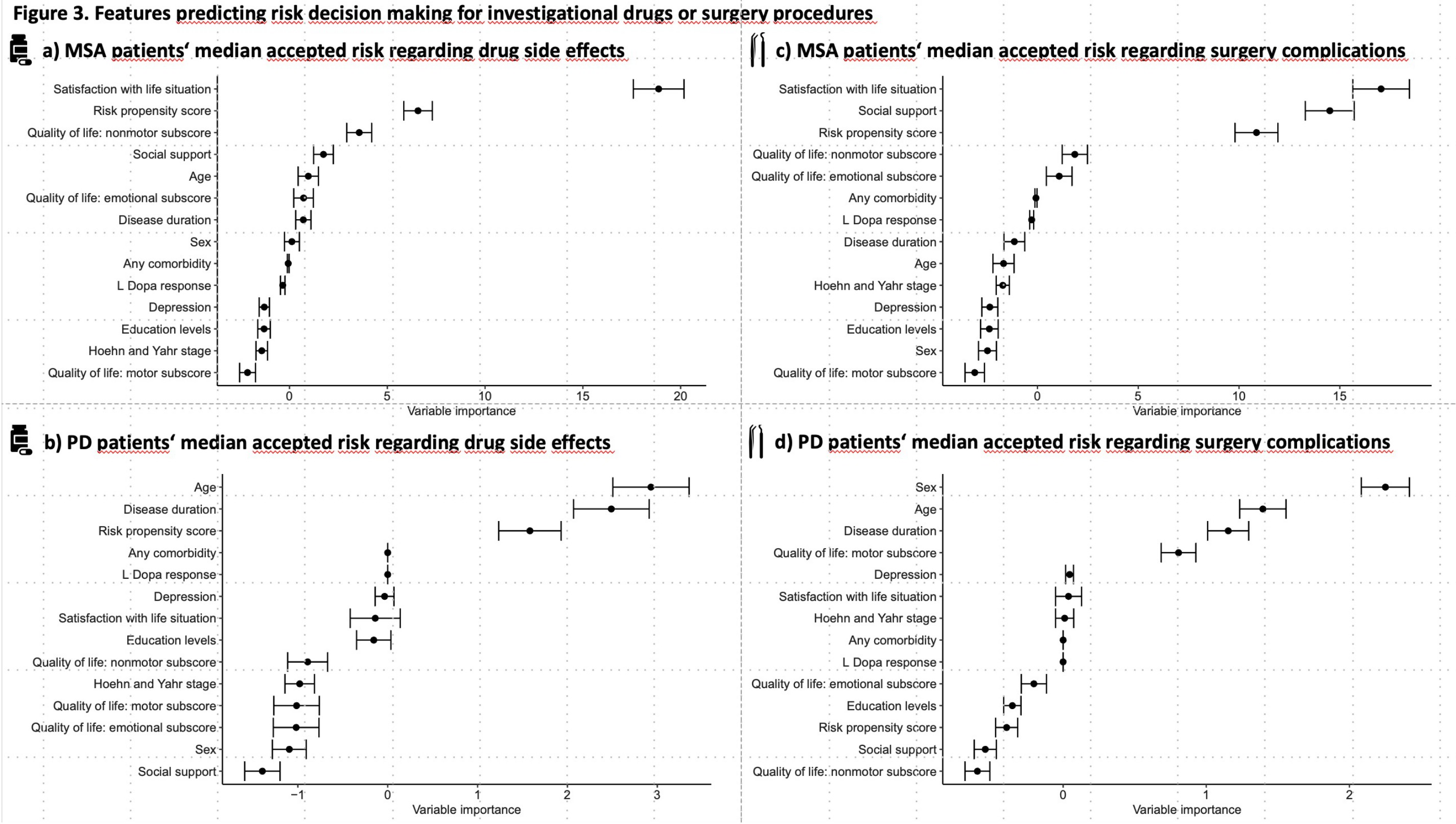Category: Parkinsonism, Atypical: MSA
Objective: This study aimed to quantify the risk willingness of patients suffering from the α-synucleinopathies multiple system atrophy (MSA) and Parkinson’s Disease (PD) and identify predictors of their risk willingness.
Background: Disease modifying therapeutic strategies in the two α-synucleinopathies multiple system atrophy (MSA) and Parkinson’s Disease (PD) are on the verge of being clinically tested. Involving patients’ preferences from the initial stages in therapy development has been increasingly pursued in regulatory approval processes.
Method: We designed our study to quantify MSA and PD patients risk willingness and delineate predictors thereof. 49 patients with MSA and 38 patients with PD completed all assessments between March 2019 and March 2021. Eligible participants met consensus criteria for possible or probable MSA or MDS diagnostic criteria for the clinical diagnosis of PD [Table 1]. Risk willingness was measured by standard gamble scenarios for the most bearable, most severe, and lethal drug side effects or surgery complications [Figure 1]. Conditional variable importance with random forests was employed to derive the most important psychological and clinical features predicting specific therapy-associated risk propensity.
Results: Patients’ tolerability to accept risks varied widely for most scenarios. MSA patients displayed a trend towards higher propensity to accept therapy-associated risks than PD patients [Figure 2]. We delineated that satisfaction with life situation and emotional and nonmotor disease burden predicted MSA patients’ risk willingness in contrast to PD patients, for whom mainly age and disease duration were independent predictors [Figure 3]. The psychological feature of general risk aversion or sensation seeking predicted willingness to accept therapy-associated risks in both groups to varying degrees.
Conclusion: A thorough quantitative analysis of patients’ willingness to accept risks and predictors thereof can aid physicians in conducting individual consultations and improve communication with MSA and PD patients who seek information on the potential risks and benefits of treatment options. Risk willingness varies substantially between individuals, and if directly assessed, it may help guiding the rating of safety aspects in regulatory approval processes in a patient-centric manner.
To cite this abstract in AMA style:
A. Bernhardt, M. Oeller, I. Friedrich, E. Kocakavuk, E. Nachman, K. Peikert, M. Roderigo, A. Rossmann, T. Schröter, LO. Wilhelm, F. Gandor, J. Levin, A. Giese, A. Janzen, WH. Oertel. Therapy-associated risk decision making in individuals with multiple system atrophy and Parkinson’s disease, THE YAMSA TRIAL [abstract]. Mov Disord. 2023; 38 (suppl 1). https://www.mdsabstracts.org/abstract/therapy-associated-risk-decision-making-in-individuals-with-multiple-system-atrophy-and-parkinsons-disease-the-yamsa-trial/. Accessed December 25, 2025.« Back to 2023 International Congress
MDS Abstracts - https://www.mdsabstracts.org/abstract/therapy-associated-risk-decision-making-in-individuals-with-multiple-system-atrophy-and-parkinsons-disease-the-yamsa-trial/




